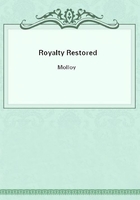
第42章 CHAPTER VII.(2)
Charles and his bride therefore took barge to Greenwich, one bright July day, followed by a brilliant and illustrious train, that they might wait upon her majesty. And she, being made aware of their approach, met them at the portal of the palace. There Catherine would have gone down upon her knees to this gracious lady--the survivor of great sorrows--but she took the young queen in her arms, and calling her beloved daughter, kissed her many times. Then she greeted her sons Charles and James, likewise the Duchess of York, and led them to the presence-chamber, followed by the whole court. And presently when Catherine would, through her interpreter, have expressed her gratitude and affection, the elder queen besought her to lay aside all ceremony, for she "should never have come to England again except for the pleasure of seeing her, to love her as her daughter, and serve her as her queen." At these sweet words the young wife, now in the first days of her grief, was almost overcome by a sense of thankfulness, and could scarce restrain her tears; but she answered bravely, "Believe me, madam, that in love and obedience neither the king nor any of your children shall exceed me."The court of the merry monarch and that of the queen mother being now settled in town, a period of vast brilliancy ensued, during which great festivity and much scandal obtained, by reason of intrigues in which the king and his friends indulged. Whitehall, the scene of so much gaiety and gallantry, was a palace by no means befitting the luxurious Charles. It consisted of a series of irregular houses built for different purposes at various periods; these contained upwards of two thousand rooms, most of which were small, and many of which were without doors. The buildings were intersected by grassy squares, where fountains played, statues were grouped, and dials shadowed the passing hour. At hand stood St. James's Park, with its fair meadows and leafy trees; close by flowed the placid Thames, bearing heavily laden lighters and innumerable barges. Attached to these dwellings, and forming part of the palace, stood the great banquet hall, erected from designs by Inigo Jones for James I.
Here audiences to ambassadors, state balls, and great banquets were held. The ceiling was painted by Rubens, and was, moreover, handsomely moulded and richly gilt. Above the entrance-door stood a statue of Charles I.,"whose majestic mien delighted the spectator;" Whilst close by one of the windows were the ineradicable stains of blood, marking the spot near which he had been beheaded.
Now in the train of the queen mother there had travelled from France "a most pretty sparke of about fourteen years," whom Mr.
Pepys plainly terms "the king's bastard," but who was known to the court as young Mr. Crofts. This little gentleman was son of Lucy Walters, "a brown, beautiful, bold creature," who had the distinction of being first mistress to the merry monarch. That he was his offspring the king entertained no doubt, though others did; inasmuch as young Mr. Crofts grew to resemble, "even to the wart on his face," Colonel Robert Sidney, whose paramour Lucy Walters had been a brief while before his majesty began an intrigue with her. Soon after the boy's birth that beautiful woman abandoned herself to pleasures, in which the king had no participation. He therefore parted from her; had her son placed under the guardianship of Lord Crofts, whose name he bore, and educated by the Peres de l'Oratoire at Paris. The while he was continually at the court of the queen mother, who regarded him as her grandson, and who, by the king's command, now brought him into England. The beauty of his face and grace of his figure could not be exceeded, whilst his manner was as winning as his air was noble. Moreover, his accomplishments were numerous; he danced to perfection, sang with sweetness, rode with skill; and so gallant was his nature that he became at this early age, as Hamilton affirms, "the universal terror of husbands and lovers."The king betrayed the greatest affection for him, and took exceeding pride in being father of such a brave and comely youth, at which my Lady Castlemaine was both wrathful and jealous, fearing he would avert the royal favour from her own offspring;but these feelings she afterwards overcame, as will be duly shown. His majesty speedily showered honours upon him, allotted him a suite of apartments in the royal palace of Whitehall, appointed him a retinue befitting the heir apparent, created him Duke of Orkney and of Monmouth, and installed him a knight of the garter.
But, before this had been accomplished, there arrived in town some personages whose names it will be necessary to mention here, the figure they made at court being considerable. These were Sir George Hamilton and his family, and Philibert, Chevalier de Grammont. Sir George was fourth son of James, Earl of Abercorn, and of Mary, sister to James, first Duke of Ormond. Sir George had proved himself a loyal man and a brave during the late civil war, and had on the murder of his royal master sought safety in France, from which country he, in the second year of the restoration, returned, accompanied by a large family; the women of which were fair, the men fearless. The Hamiltons being close kin to the Ormond great intimacy existed between them; to facilitate which they lived not far apart--the duke residing in Ormond Yard, St. James's Square, and the Hamiltons occupying a spacious residence in King Street. James Hamilton, Sir George's eldest son, was remarkable for the symmetry of his figure, elegance of his manner, and costliness of his dress. Moreover, he possessed a taste shaped to pleasure, and a disposition inclined to gallantry, which commended him so strongly to the king's favour, that he was made groom of the bedchamber and colonel of a regiment.